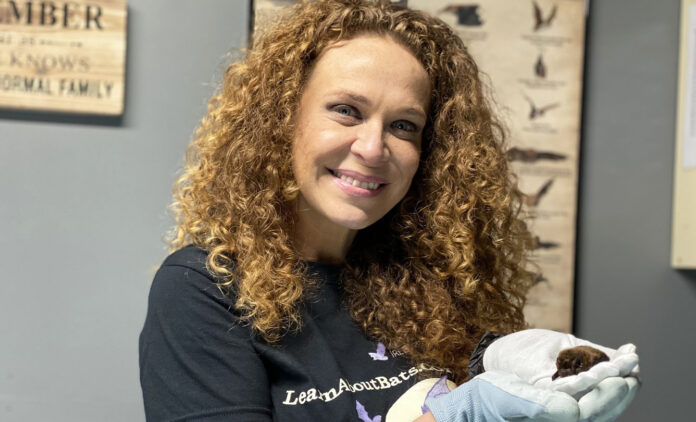
A LIMERICK woman who is bats about bats is celebrating this week, along with the volunteers who help her, having been awarded charitable status for the rescue service they provide.
Susan Kerwin from Bruree rescues the flying furry creatures when they’ve come off the worse end of anything from being attacked by a cat to being trapped in a building.
Susan has been rescuing wildlife for 15 years and, in recent times, has been concentrating on bats. She now has around 30 volunteers who drive to collect injured animals in as wide a catchment area as they can.
Susan opened her first ‘bat hospital’ from the garden in her Bruree home two years ago. However, up to this month, the full cost feeding her bats, their vet care, and keeping the injured ones warm and well fell on her and any gifts she got.
Now with her her group, Bat Rehabilitation Ireland, having been given official charitable status, she is free to accept donations and conduct funding drives.
She told the Limerick Post that it’s a “fantastic recognition of what we do and how dedicated we are to this”.
“We’re all really delighted at this news.”
The mother-of-two came to love the little creatures when she was being treated for cancer.
A side effect of her treatment was insomnia, so she would take a cup of tea into her darkened garden and watch the flights of bats.
Her interest in the creatures grew and now she is an authorised bat rehabilitation person with Wildlife Rehabilitation Ireland.
“They’ve helped me so much at difficult times. I always say I was given a second chance. I want to give injured bats a second chance too,” she told the Limerick Post.
Susan currently has 34 bats in her care, as well as barn owls, peregrine falcons, and buzzards. She expects many more animals over the coming winter months.
“There is nothing to fear from bats – except what might happen if they weren’t here,” says Susan, pointing out that the little critters are a very important link in the food chain, with some Irish species eating their body weight in insects each night.
“The population of each species is said to be around one million in Ireland. If you have a million of them and they’re weighing five to six grammes, if you multiply that, that’s over ten tonnes of insects that are being eaten each night by just two of the nine species of bat that we have in Ireland.”
Cats are bats’ biggest enemies, she notes. One cat can wipe out a whole colony, waiting for them to come out at dusk or return just before dawn.
“We would ask people to keep their cats in for at least an hour after dark and, if possible, get them in before dawn so the bats have a chance.”
Susan says bats are also under pressure from hedgerows and old buildings being torn down as they use these for cover to catch their insect meals.
Looking after the injured infant bats is extremely labour intensive, she explains.
“They have to be fed a special milk formula. This has to be done every two and half hours, 24 hours a day, for the first few weeks.”
Bats are a protected species under the Wildlife Act. Anyone who finds a bat in distress can contact Susan and Bat Rehabilitation Ireland on Facebook, as well as supporting the group in their work by making a donation.


